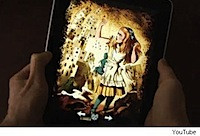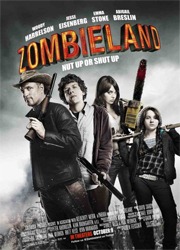by Michelle Gagnon
I’ve been fortunate enough to have my books translated into five languages. The other night my sister asked if I had read the French editions of any them yet. I shuddered at the very thought.
Let me explain why. I recently gave my Norwegian friend an edition of THE TUNNELS in her native tongue. She started reading the bio–the BIO, mind you–and burst out laughing. When I asked why, she translated it for me. Turns out that the Norwegian editors didn’t use my official book bio, they lifted the one off my website, which is fairly tongue-in-cheek. And a lot of that humor doesn’t translate.
Things like, “To the delight of her parents, she gave up all these occupations for an infinitely more stable and lucrative career as a crime fiction writer,” became: “Her parents were beside themselves with enthusiasm at her new career since she was finally making a fortune.”
And:
“In her spare time she runs errands and indulges a weakness for stale cinema popcorn and Hollywood blockbusters,” turned into, “whenever she gets the chance she races off to the cinema to the neglect of everything else.”
Not good. It reminds me of discussing Kathleen Turner’s voice with a French friend, who said, “What are you talking about? She sounds just like everyone else.” Turns out only a handful of actors and actresses dub the movies into French, so George Clooney, Tom Cruise, and Steve Buscemi comes across as having the exact same voice.
As writers, all we can do is hope that our translators do us justice. That being said, on the off chance that mine didn’t, I don’t want to know about it.
Which brings us to today’s anonymous first page submission.The author originally wrote THE UNTOUCHABLE in Portuguese, but translated the page for us. I’ve placed her original below, followed by an edited version for clarity.
The Untouchable
Police know a lot of things. But between knowing, proving and making it official, there is a huge distance.
That declaration had been credited to José Carlos Lino, one of the commissaries at the 89º district in São Paulo. It was among the notes of Jair Silvestre, a journalist murdered with five shots to the chest almost two years ago. And at the top of the notebook page, in a very round handwriting: THE UNTOUCHABLE.
The crime was never solved.
I don’t know why I had remembered that. An agent from another team came to talk about the frustration his colleagues felt when they found out this guy they had taken to justice was declared innocent on court. Common thing.
Then I thought it was quite an awry declaration, that from the 89º district commissary. We knew well that not even proving was enough. I stopped believing in justice after the first two months studying at law school. I still got it wrong trying to figure out in what I should believe.
It dawned.
We arrived at the crime scene around five-thirty in the morning. It was a quiet street. A few commercial buildings and houses. All the shops were closed. A man and a woman that had been walking their dogs were standing at the corner. A biker stopped across the street to watch what was going on. The police cars parked alerted those that are used to wake up early.
Commissary Daniel went first. He made his way through the military police. He greeted the district commissary and asked for the scientific police. The man pointed ahead and we walked past the entrance to a construction site. They were preparing the foundations of a building. I noticed a chain thrown on the ground in the inside. A broken padlock.
The terrain was an L and the neighbor house still covered the crime. I recognized on of the 15º district detectives ahead, and he was looking up as if waiting for rain to fall. The sky was clear. It had rained overnight and there was a cold wind blowing.
I could hear the sound of our footsteps on the dirt ground. A hard ground. A few superficial truck tire marks. I felt an uneasiness in my stomach, and remembered I hadn’t eaten for over six hours. I stopped by the commissary’s side and followed everyone else’s eyes. Because it was already impossible to pay attention to anything other than the body in a large hole they had started digging.
Daniel put a hand to his mouth and my partner looked away.
“Holy shit.”
One of the CSI stopped his movement to look at Daniel and offer an uncertain smile. It was certainly the most appropriate at that situation. I kept staring. This morbid curiosity that we build after all these years facing two or three dead a week. Least. But the scene was indeed a bit worse then I was used to. It was a scene to remind us that we never should have gotten used to any of that.
One couldn’t tell if it was a man or a woman. The body was deformed. The head a shapeless mass of blood, brain and hair. His guts were torn and formed an impossible angle with the rest of the thorax. I could see the jeans and a shirt that once probably had been of a light color. It was covered with blood, mixed with pieces of his bowels and dirt. He was barefoot, without socks. It was the only thing that still reminded a human being. Very white feet.
Had it been a city in the countryside, I would be sure it had been an attack by a wild animal. But it was São Paulo, in the Itaim Bibi neighborhood, about five blocks from the police district.
My empty stomach rolled. I looked at one of the CSIs standing by the district detective. She was staring at the victim. The expression was disgust, sleepiness and resignation. It was too early and she had to touch that rotten body. The coroner was talking to another CSI. No one seemed very happy.
The Untouchable
Police know a lot of things. But there’s a huge gap between knowing something and officially proving it.
That declaration by José Carlos Lino, one of the commissaries from the 89º district in São Paulo, was found among the notes of a journalist murdered almost two years ago. Jair Silvestre had taken five shots to the chest. At the top of his notebook page in very round handwriting: THE UNTOUCHABLE.
The crime was never solved.
I don’t know why I remembered that. An agent from another team expressed the frustration his colleagues felt when they found out a guy they knew was responsible was declared innocent on court. It happens all the time.
I thought Lino’s declaration was odd. We all knew that sometimes even proving a thing was not enough. After two months of law school, I stopped believing in justice. I’m still trying to figure out what to believe in.
We arrived at the crime scene around five-thirty in the morning. Dawn was breaking. It was a quiet street with a mix of commercial buildings and houses. All the shops were closed. The parked police cars alerted the early risers. A man and woman stood at the corner with their dogs, and a biker stopped across the street to watch what was going on.
Commissary Daniel went first, making his way through the military police. He greeted the district commissary and asked for the scientific police. The man pointed, and we walked through the entrance on to a construction site where they were laying the foundations of a building. On the ground inside, a chain lay beside a broken padlock.
The terrain was an L and the neighbor house still covered the crime (?). I recognized one of the 15º district detectives, he was looking up at the sky as if waiting for rain to fall. A cold wind was blowing.
The sound of our footsteps on the hard dirt. We were careful to avoid a few superficial truck tire marks. I felt queasy, and realized that I hadn’t eaten in over six hours. I stopped by the commissary’s side and followed everyone’s eyes. It was impossible to pay attention to anything other than the body in the large hole.
Daniel put a hand to his mouth and my partner looked away.
“Holy shit.”
One of the CSI techs looked at Daniel and offered an uncertain smile (?). I kept staring. After all these years of facing at least two or three bodies a week, we tended to be inured. But this scene was much worse than what I was used to. It was bad enough to remind us that we should never have gotten used to any of it.
The body was so deformed it was impossible to determine gender. The head was a shapeless mass of blood, brain and hair. The guts were torn and formed an impossible angle with the rest of the thorax. I could see jeans and a shirt that had probably once been white. It was covered with blood, mixed with pieces of bowels and dirt. The corpse was barefoot. Those pale feet were the only thing that still called to mind a human being.
Had it been found in the countryside, I would have categorized it as an attack by a wild animal. But this was São Paulo, in the Itaim Bibi neighborhood, about five blocks from the police district.
My stomach rolled. The CSI tech standing by the district detective was staring at the victim with an expression of disgust, sleepiness and resignation. It was too early and she had to touch that rotten body. The coroner was talking to another CSI. No one seemed very happy.
Notes:
I’m intrigued by this storyline. I think the bones of an interesting character and plotline are here in spades. I like some of the descriptive passages quite a bit.
Still, there were a lot of things I found confusing. Some of that was due to the translation, I suspect, but some might be endemic to the story itself. Firstly, why start off with the quote? It’s not a particularly powerful one (at least in the English translation). I also was confused as to how the murder of the journalist played into things- does it have anything to do with the body we encounter further down the page? Does it enter the story later, and if so, why include it at the outset? At this point, I know that the main character is a lawyer, but why is she present at the scene? She also appears to be a cop, or at least sees a lot of corpses in her line of work.
Introducing a character is a tricky thing. You want to provide enough information to make them intriguing and to give a reader something to latch on to, without falling into the “information dump” trap. Here, the author has made an interesting choice. I’m told that the main character doesn’t know what to believe in before I find out anything concrete about her. This could work, but I’d need more to be sold on her first.
Dialogue could be used to address some of these issues. For example, instead of having everyone standing around looking at each other, let them discuss what they’re seeing.
“Nasty one,” said Daniel.
I nodded but didn’t respond. The only thing identifying the bloodied mass before me as human was the pair of pale feet, oddly untouched by the carnage.
The CSI tech wrinkled her nose, taking it in. “Why do the bad ones always come in when I’ve been up all night?”
What do the rest of you think of THE UNTOUCHABLE?





